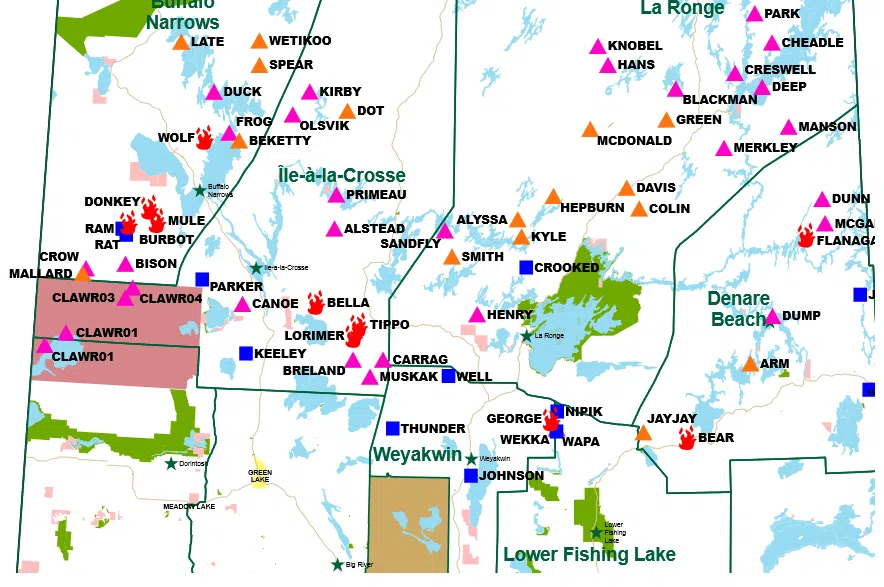Saskatchewan has its hands full dealing with wildfires.
So much so, that it can’t afford to help out Alberta with its own wildfire issues according to Steve Roberts, vice president of operations with the Saskatchewan Public Safety Agency (SPSA).
On Monday afternoon there were 85 active fires burning in Saskatchewan, with only 11 of them considered contained.
On Monday’s Evan Bray Show, Roberts said that over the last couple of weeks, the number of active wildfires had started to drop thanks to precipitation working its way down from the north.
“Primarily what we need is consistent rain – a big system that comes in quick with lots of downpours. Showers (are) not really as effective, because those typically come with lightning,” Roberts said.
“These bigger systems that sweep (where) it rains for a couple days straight don’t typically have a lot of lighting, so it’s the best of both worlds — no new fires, and it also gets us ahead on some of the fires we already have.”
Roberts said the SPSA decided to remove the northern fire ban as a result of rainfall in the area.
“We do have some high fire hazards in the southern part of the province, but those can be managed through either the rural municipalities (that) have jurisdiction to put on fire bans and the parks in the southern part of the province can also implement burning restrictions if they feel they need at a local level,” Roberts said.
Read more
- Rapid response likely saved lives during Jasper wildfires, expert says
- By the numbers: Saskatchewan’s 2023 wildfire season
On Monday, there were nearly 30 fire bans in place in the southern half of the province.
There have been 421 fires so far this year in Saskatchewan, according to the SPSA’s website. The five-year average is 296.
Roberts said the northern fire ban may be reinstated if conditions changed.
“We’ll make a decision based on two factors — the potential weather coming in and also the workload, because we can’t fight new fires if we’re already engaged in existing fires,” he said.
Roberts said SPSA regularly undertakes mitigation work but views fire prevention as something that works on three levels, and individuals and municipalities have a part to play as well.
Roberts said that includes everything from building standards and landscaping to having individual home sprinkler systems.
Roberts said the SPSA regularly does “fuel mitigation,” which includes thinning or even replacing surrounding vegetation near communities susceptible to wildfire. This could involve changing trees from conifers to hardwood trees which are less vulnerable to fire, he said.
Read more











